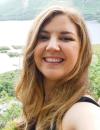Dr Vanessa Reid (MA, MSc, PhD)
Leverhulme Early Career Fellow

- School of History, Classics and Archaeology
Contact details
- Email: vanessa.reid@ed.ac.uk
- Web: ORCiD Profile
- Web: Research Profile
Address
- Street
-
Room 3.10
24 Buccleuch Place
Central Campus - City
- Post code
Availability
By appointment - please email to arrange a time
Background
I began my archaeological journey at the University of Aberdeen (Scotland), undertaking an MA degree in Archaeology before returning to the same institution to complete a Masters programme in Archaeology of the North. I gained my NERC-funded doctorate from Durham University in collaboration with the University of Stirling, utilising integrated geoarchaeological techniques (geochemistry, magnetic techniques and soil micromorphology) and desk-based soil surveys to examine site preservation environments and characterise the use of space in early medieval structures across Scotland. A six-month placement with Historic Environment Scotland provided experience of the wider heritage sector.
Following my PhD, I continued to work with Historic Environment Scotland as a self-employed geoarchaeological contractor, undertaking desk-based research and lab-based pilot studies of the turf and earth building materials within their care. I have also been employed as a postdoctoral research assistant on the Burghead "CITADEL Project" with Professor Gordon Noble (University of Aberdeen) and the “Geographies of Power” project with Dr Tanja Romankiewicz here at the University of Edinburgh. I began my current role as a Leverhulme Early Career Fellow in May 2025, leading the "Residues of Life" project.
Research summary
Places:
- Britain & Ireland
- Scotland
- Europe
Themes:
- Geoarchaeology
- Bioarchaeology
- Culture
- Society
- Material Culture
Periods:
- Prehistory
- Antiquity
- Early Historic
- Medieval
- Post-medieval
Current research interests
My primary research focuses on settlement and the use of space within prehistoric, Roman and early medieval structures across northern Europe. By integrating field excavation with lab-based geoarchaeological methods, I aim to spatially reconstruct activity areas and use this to develop biographies of the sites and the people who lived within them. I am also interested in climate change, evaluating its impact at both the macroscopic and microscopic level, in order to inform heritage management strategies.Project activity
Leverhulme Trust Early Career Fellowship - Residues of Life: Microanalysis of Activity & Climate Change at Roman Vindolanda
The Residues of Life project is a timely contribution to the ongoing excavations at Vindolanda, a Roman auxiliary fort (castrum) just south of Hadrian's Wall in Northumberland, England. The well-preserved forts at the sites - covering at least nine rebuilds - offer a unique opportunity to access information regarding daily life on Rome’s northern frontier. Physical and chemical residues hidden in the both the anaerobic and aerobic archaeological soils can be used to reconstruct the areas in which people worked and resided. However, climate change is already affecting the integrity of these deposits and we face the loss of crucial information if we fail to understand the risk posed. Using a micro-scale approach not yet applied to Roman forts in Britain, this project will build a more detailed understanding of deposit integrity and the impacts of climate change whilst providing critical new insights into function, reuse and social organisation.
Current project grants
Leverhulme Trust Early Career Research Fellowship (2025-28)
Past project grants
NERC IAPETUS PhD Studentship (2018-22)
NERC IAPETUS Research Training Support Grant (2018-22)
Historic Environment Scotland Placement Grant (2018-22)
